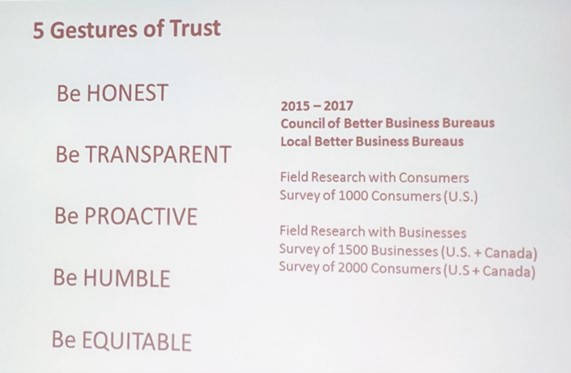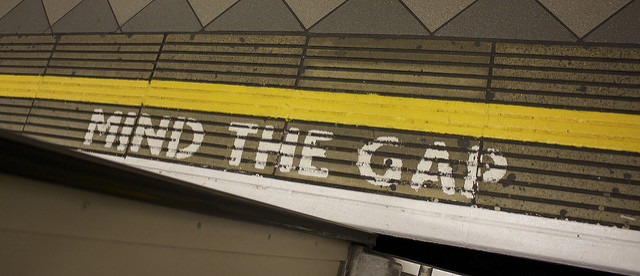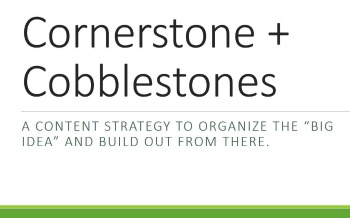What does business trust mean?
Do you trust Verizon or AT&T? How about your favorite coffee shop — or the family owned restaurant down the street?
It’s a simple question. But the answer — “yes” or “no” — isn’t.
The Better Business Bureau is interested in better understanding what it means to have trust in a business. As part of its research, BBB is holding a series of Future of Business meetings across the country to talk about what trust is and what it entails. I was lucky enough to be invited to their Washington, DC, event last week.
The five gestures of business trust.

According to ethnographer Craig Honick, there are 5 elements of trust:
- honest
- transparent
- proactive
- humble
- equitable
Honick noted that customers often equate honesty with competence. He added that being proactive, humble, and equitable equate to being consistent in your actions.
As an example, Honick talked about his last experience taking Uber to his local airport. Shortly before he was due to leave, the company texted that they were adding a surge fee of 1.9x his original fare and that he would have five minutes to cancel if he wanted to change his mind. (It was Saturday morning and the streets were deserted.) Next Uber texted to say the driver would be late. A few minutes later they texted that he would have two minutes to cancel. Then the driver showed up in the wrong place. Then he got his bill — and Uber had tacked on a wait fee.
The company violated Honick’s trust and lost his business by being neither equitable nor humble. And he estimated that for demanding $14.57 over his fare, Uber lost 52,199% in five-year future earnings from him alone.
This is what a trust gap looks like.

I started to think about the big trust gaps in business and immediately identified four:
- customer acquisition vs. customer retention
- pricing (or pricing inequality)
- employee recruiting vs. employee retention
- brand promise vs. organizational reality
My friend Tom Martin has a terrific example of pricing inequality. Or just think about any airline flight and how many different fares the passengers on board paid. Or think about what happens when you take a job and discover the values you were pitched on don’t exist. Meanwhile, this is where brand promise fails.
Look at your organization. Look closely. Are you succeeding at business trust or do you have work to do?
Mind the Gap by pommiebastards (Flickr). Feature photo by hang_in_there (Flickr).



